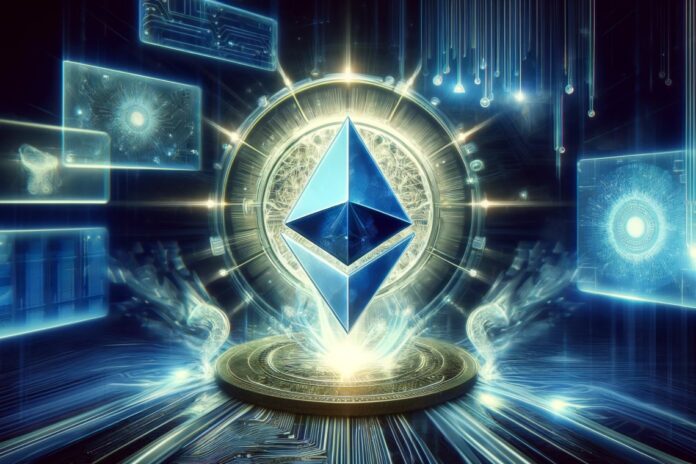Vitalik Buterin, the visionary co-founder of Ethereum, together with co-authors Sam Wilson, Ansgar Dietrichs and Matt Garnett, has recently presented a revolutionary proposal: the EIP-7702.
This proposal aims to enhance the concept of “account abstraction” on Ethereum, introducing new flexibility and potential to externally owned accounts (EOA), such as regular wallets, allowing them to temporarily take on the functions of a smart contract during a transaction.
Summary
What is EIP-7702? The proposal by Ethereum co-founder Vitalik Buterin
The EIP-7702, or Ethereum Improvement Proposal 7702, is a technical proposal that aims to extend the capabilities of externally owned accounts on Ethereum, allowing them to behave like smart contracts.
Normally, EOAs are simple wallets that can send and receive funds, but cannot execute arbitrary code like smart contracts.
However, with the introduction of EIP-7702, these accounts will be able to temporarily activate smart contract capabilities to perform complex operations, and then return to their original state once the transaction is completed.
The need for such innovation stems from the current limitations of EOAs, which cannot directly participate in more complex transactions without the intermediation of a smart contract.
This not only complicates some operations but also limits the possibilities of automation and customization for Ethereum users. With EIP-7702, users will be able to take advantage of the flexibility of smart contracts while maintaining the simplicity and security of a normal wallet.
The mechanism proposed in EIP-7702 provides that an EOA can temporarily activate a set of functionalities typical of a smart contract, such as the execution of specific code, at the time of the transaction.
This process is possible thanks to a modification of the Ethereum Virtual Machine (EVM) that recognizes and treats these “enhanced” EOAs for the necessary duration. Once the transaction has been executed, the account returns to its original EOA state, ensuring security and stability.
I benefits:
- Greater Flexibility: Users can customize their transactions tailored to specific needs, without the need to interact with external smart contracts.
- Gas Efficiency: Reducing the need for intermediary smart contracts can result in a significant reduction in gas costs, essential for large-scale operations.
- Usability: By maintaining the basic structure of EOAs, users will enjoy a less complicated and more direct user experience.
The future of Account Abstraction and its economic implications
One of the most promising aspects of EIP-7702 is its potential ability to transform the economy of smart contracts on Ethereum.
Currently, the creation and maintenance of smart contracts require significant resources, both in terms of development and execution costs, mainly due to gas consumption.
Buterin’s proposal could simplify this process, reducing the need for multiple contracts for operations that a user wants to perform repeatedly, thus lowering overall costs and making blockchain technology more accessible to a wider audience.
This increased accessibility could have direct repercussions on the adoption rate of Ethereum. With lower entry barriers, more companies and individuals could be incentivized to explore and adopt Ethereum-based solutions.
Furthermore, the adoption of such proposal could stimulate a new wave of innovations in sectors such as gaming, digital art, and digital asset management, where the need for complex and personalized interactions is particularly felt.
The issue of security is central in the debate on EIP-7702. Increasing the complexity of EOAs could trigger new security risks that must be carefully addressed.
The Ethereum community will need to work together to develop new security protocols that can adequately protect enhanced accounts against malicious attacks, while at the same time preserving the fluidity and efficiency of transactions.
Furthermore, the introduction of EIP-7702 could require a review of Ethereum’s governance regulations, as the current framework may not be fully equipped to handle the changing dynamics of accounts and their interactions.
Active participation of the community, through improvement proposals and voting, will be essential to ensure that the changes not only enhance the technology, but also reflect the values and needs of Ethereum users.
Possible Implications of Vitalik Buterin’s Choice on EIP-7702 on Ethereum
If implemented, EIP-7702 could lead to a significant evolution of decentralized applications (DApps) on Ethereum, making the platform even more attractive for developers and end users.
The ease with which accounts can be adapted for specific functions could also stimulate innovation in areas such as decentralized finance (DeFi) and digital identity.
Despite the numerous advantages, the EIP-7702 presents some challenges, especially regarding security.
The increase in functionality of EOAs could potentially expose them to new attack vectors. Therefore, it will be essential to implement robust security measures to protect users and maintain the integrity of the Ethereum network.
The EIP-7702 represents a significant step forward in the attempt to make Ethereum a more accessible and powerful platform. Although there are challenges to overcome, the potential for significant improvements in transaction management and interaction with the blockchain is evident.
Over the next few months, the Ethereum community will have the opportunity to evaluate, discuss, and potentially adopt this proposal, continuing to push the boundaries of what is possible with blockchain technology.




